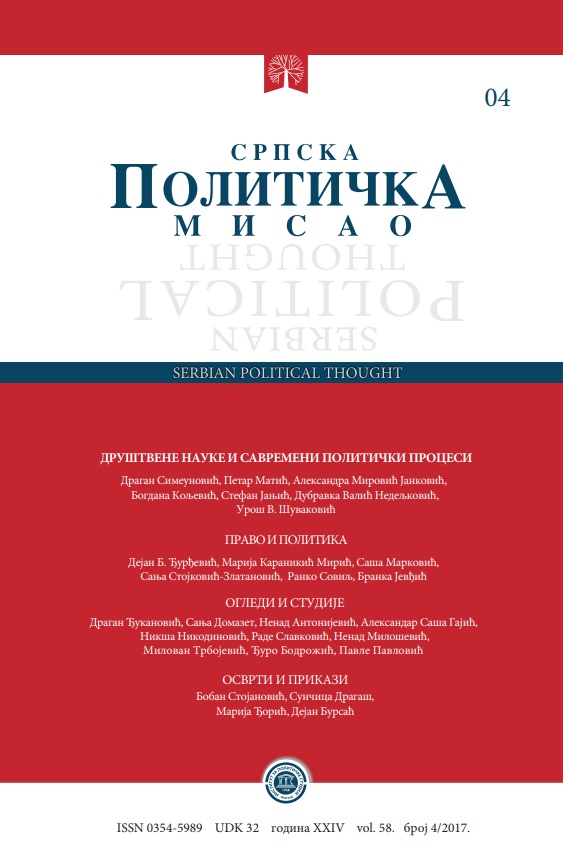Необавештајни облик деловања обавештајних служби
Non-Intelligence form of Activities of Intelligence Services
Author(s): Milovan TrbojevićSubject(s): Security and defense
Published by: Институт за политичке студије
Keywords: intelligence service; foreign policy; non-intelligence activities; secret operations; state
Summary/Abstract: Historically viewed, parallelly with emergence and development of states, intelligence services also developed. They played a significant role in shaping internal and foreign policy of states. In fact, intelligence services, through various forms of activities, can “produce” and shape various types of crises and conflicts. Non-intelligence activities of intelligence services are one of the most efficient forms of foreign-policy activities of a state, especially in cases when political decision-makers decide on the use of force and coercion in realization of “national interests and goals”. In intelligence theory there is no unique definition of the term “non-intelligence activity”, however, among theoreticians of intelligence work, we believe, there is a general consensus that an activity from this field of intelligence services` activities is in function of realization of goals in the domain of foreign policy. The most frequently used synonyms for non-intelligence activities in professional literature dealing with intelligence activities are as follows: “covert operations”, “secret operations”, “secret actions”, “special activities”, “non-conventional actions”. Non-intelligence operations are complex and extremely complicated activities, performed by intelligence services in multiple phases, on whose number there is no consensus in the security theory. We believe the most acceptable is the position of Milan Mijalkovski who claims that non-intelligence operations are performed in six stages: 1) political order; 2) professional order; 3) planning; 4) organization; 5) execution; and 6) analysis and report. Intelligence services of a state apply a broad specter of versatile non-intelligence activities against another state, which can be divided into four groups: a) informative-propaganda operations; b) political operations; c) economic operations, and d) paramilitary operations. Each of these operations can be executed autonomously or as a part of a broader strategy. Thus, in contemporary conditions intelligence services have undertaken a totalitarian character, since they have installed their infrastructure across the whole world, creating powerful intelligence centers from which they can at any moment act efficiently and successfully, and respond to demands of the mother state`s foreign policy requirements.
Journal: Српска политичка мисао
- Issue Year: 2017
- Issue No: 4
- Page Range: 319-334
- Page Count: 16
- Language: Serbian

